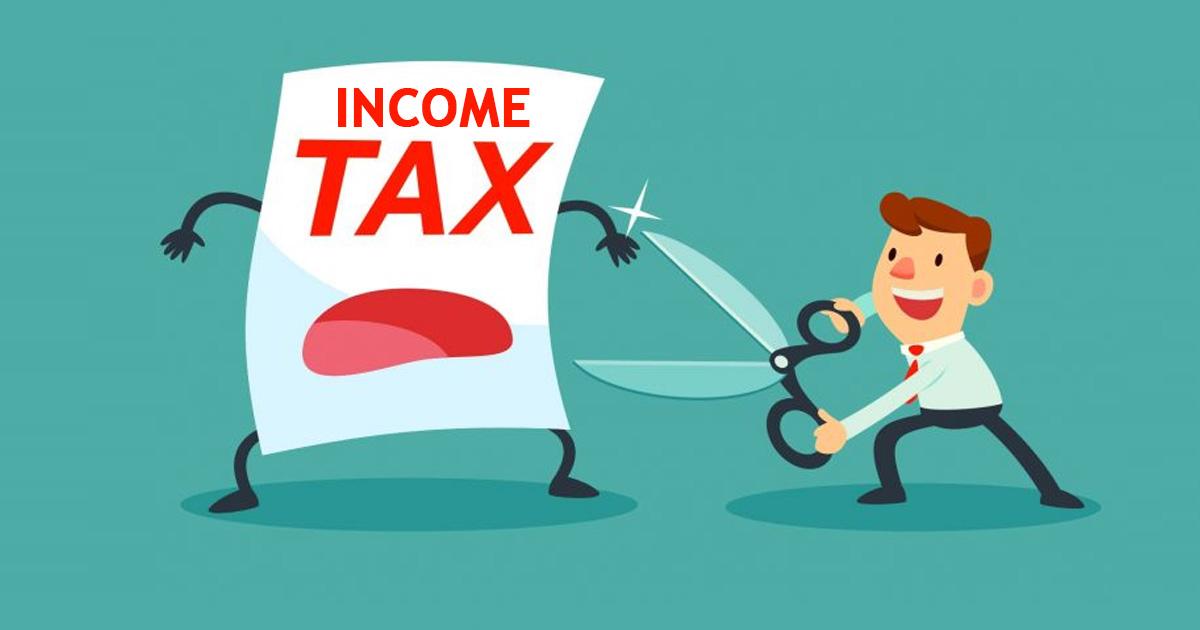How to Save Income Tax for FY 2023-24 in India
Table of Contents
In the realm of taxes, a dance unfolds, Where savings and deductions, stories are told. Section 80C, a treasure trove, Investments bloom, like gardens above.
EPF, NPS, a financial embrace, Numbers align, in a tax-saving grace. Health insurance shields, 80D’s magic, Against life’s storms, a financial fabric.
Home loans whisper tales of deduction, First-time dreams find a sweet reduction. Charity’s symphony, 80G’s song, A melody of giving, where hearts belong.
In this fiscal ballet, deductions bloom, A tax-saving waltz, in financial room. Consult the numbers, let savings soar, As FY 2023-24 knocks on your door.
Top of Form
“A penny saved is a penny earned” is a timeless adage attributed to Benjamin Franklin, and it encapsulates a fundamental principle of personal finance. This saying emphasizes the importance of frugality, prudence, and the value of saving money. By wisely managing and preserving the resources we have, we not only prevent unnecessary spending but also accumulate wealth over time. It underscores the idea that every small saving contributes to one’s overall financial well-being, reinforcing the notion that being mindful of expenses is akin to actively earning and accumulating wealth
Certainly! Here are eight ways to save income tax in India for the financial year 2023-24:
Invest in Section 80C Instruments:
- Maximize investments in instruments eligible for deductions under Section 80C, including:
- Employee Provident Fund (EPF)
- Public Provident Fund (PPF)
- National Savings Certificate (NSC)
- Equity-Linked Saving Scheme (ELSS)
- 5-year Fixed Deposit with banks
- Life Insurance Premiums
- Sukanya Samriddhi Yojana
Section 80C ke instruments mein invest karke aap apni income tax bacha sakte hain. Ismein include hain Employee Provident Fund (EPF), Public Provident Fund (PPF), National Savings Certificate (NSC), Equity-Linked Saving Scheme (ELSS), 5-year Fixed Deposits, life insurance premiums, aur Sukanya Samriddhi Yojana, jinse aapko Section 80C ke antargat deductions milte hain. Ye investments aapki overall taxable income ko kam karke aapko tax bachane mein madad karte hain. Isliye, apne savings ko smartly plan karein aur Section 80C ke benefits ka theek se istemal karein.
Contribute to the Employees’ Provident Fund (EPF):
- EPF contributions, both from the employee and employer, are eligible for deductions under Section 80C. Ensure that you are contributing to the EPF to avail of this benefit.
Employees’ Provident Fund (EPF) mein yogdan dekar aap apne bhavishya ki suraksha mein yogdan de sakte hain. Ismein aapke aur aapke employer ke dwaara diye gaye yogdan dono Section 80C ke antargat aate hain, jisse aapke lambayi samay tak chalti bachat mein sudhar hota hai. EPF mein yogdan dene se aap apne retirement ke liye secure ho sakte hain aur sath hi sath income tax ke liye bhi deductions pa sakte hain. Isliye, apne EPF mein yogdan dekar aap apne future ko financially strong banaye rakhein.
Invest in National Pension System (NPS):
- Contributions to the National Pension System (NPS) are eligible for deductions under Section 80CCD. You can claim deductions for both employee and employer contributions. An additional deduction of Rs 50,000 is available under Section 80CCD (1B).
National Pension System (NPS) mein invest karke aap apne retirement ke liye ek strong financial plan bana sakte hain. Ismein aap apne aur apne employer ke dwara diye gaye yogdan ko combine karke tax-saving benefits pa sakte hain, jo ki Section 80CCD ke antargat aata hai. Saath hi, agar aap voluntary contributions bhi karte hain, toh aapko aur Rs 50,000 tak ka additional deduction mil sakta hai, jise Section 80CCD (1B) kehte hain. NPS aapko market-linked returns bhi provide karta hai, jisse aapke funds ka growth hota hai. Isliye, apne retirement ke liye smart investment karke, NPS ke tax benefits ka labh uthayein.
Health Insurance Premiums (Section 80D):
- Avail deductions under Section 80D for health insurance premiums paid for yourself, your spouse, children, and parents. Ensure that you have an adequate health insurance policy to benefit from this deduction.
Health Insurance Premiums par invest karke aap apne swasthya aur vyaktigat suraksha mein sudhar kar sakte hain, aur isse judi vyayam ko income tax ke niche lekar deductions pa sakte hain, jise Section 80D kehte hain. Aap khud, apki patni, bachche aur mata-pita ke liye bharpur health insurance ka lena na bhulein. Yeh ek surakshit nivesh hai, jo aapko medical emergencies ke samay financial rahat pradan karta hai. Is tarah se, aap apne aur apne parivaar ke swasthya ka khayal rakhte huye tax bacha sakte hain. Health insurance premium ko timely bharte rahein aur tax season mein iska faida uthayein.
Home Loan Interest Deduction (Section 24 and Section 80EEA):
- Interest paid on a home loan is eligible for deductions under Section 24. Additionally, first-time homebuyers can claim deductions under Section 80EEA for interest on home loans.
Home Loan ki interest par kiye gaye khatte ko kam karne mein aapko madad kar sakte hain Section 24 aur Section 80EEA ke antargat. Section 24 ke tahat aap Home loan ke interest par deduction prapt kar sakte hain, jabki Section 80EEA Home kharidne wale pahli bar ke buyers ke liye adhik fayde pradan karta hai. Agar aapne apna pehla Home kharida hai toh, aap Section 80EEA ka laabh utha sakte hain, jo aapko aur adhik tax bachat ka mauka deti hai. Home loan ke is tarah ke fayde ko sahi se samajhkar, apne housing dreams ko pura karein aur sath hi tax-saving benefits ka labh uthayein.
Education Loan Interest (Section 80E):
- If you have taken an education loan for higher studies, the interest paid on the loan is eligible for deductions under Section 80E. This deduction is available for a specified period.
Education Loan ki bharai gayi byaaj par kiye gaye khatte ko kam karne mein aapko madad kar sakti hai Section 80E. Agar aapne higher education ke liye loan liya hai, toh is section ke antargat aap us par bhare gaye byaaj ka poora laabh utha sakte hain. Section 80E ke tahat aapko deduction milta hai, jo aapki taxable income ko kam karta hai. Isse na keval aap apne Education ke uchch star ko aage badha sakte hain, balki sath hi apne education loan ke byaaj par bhi bachat kar sakte hain. Isliye, higher education ki taraf kadam badhate waqt Section 80E ke tax benefits ka pura fayda uthayein.
Donations to Charitable Institutions (Section 80G):
- Donations made to eligible charitable institutions or funds are eligible for deductions under Section 80G. Ensure that the organization is registered under this section to claim the deduction.
Samvedana ke uddeshya se kiye gaye dan ko kam karne mein aapko madad mil sakti hai Section 80G. Yeh section aapko un dano par karne wale deductions pradan karta hai jo rajya mein darj charitable institutions ko diye jaate hain. Aap apni den-daratari se judi kisi bhi samajik uddeshya ko support karne ke liye kiye gaye dan ko Section 80G ke antargat darj karke us par tax deductions prapt kar sakte hain. Isse aap apne vyaktigat lakshyon ko purna karte hue samajik kshetra mein bhi yogdan de sakte hain. Samvedana mein bharosa rakhkar, Section 80G ke madhyam se apni desh ki samriddhi mein yogdan dein.
Standard Deduction for Salaried Individuals:
- Salaried individuals can benefit from the standard deduction available under Section 16. This deduction is a fixed amount and covers expenses related to employment, including transport allowance and medical expenses.
Salaried Individuals ke liye Standard Deduction ek aasaan aur seedha tareeka hai apne taxable income ko kam karne ka. Section 16 ke tahat, yeh fixed rashi ke roop mein aati hai aur ismein vyakti ke rojgar se judi vyayam, jaise transport allowance aur medical expenses shamil hote hain. Is deduction ke madhyam se, aap apne taxable income ko kam karke seedha tax bacha sakte hain, aur iske liye kisi aur documents ki zarurat nahi hoti. Isliye, agar aap ek salaried vyakti hain, toh Standard Deduction ka fayda uthayein aur apne vyaktigat aur parivaarik vyayamon par ek acha impact banayein.
Remember to keep proper documentation for all your investments and expenses to claim deductions accurately. It’s advisable to consult with a tax professional or financial advisor to ensure that you are optimizing your tax-saving strategies based on your specific financial situation and goals.



